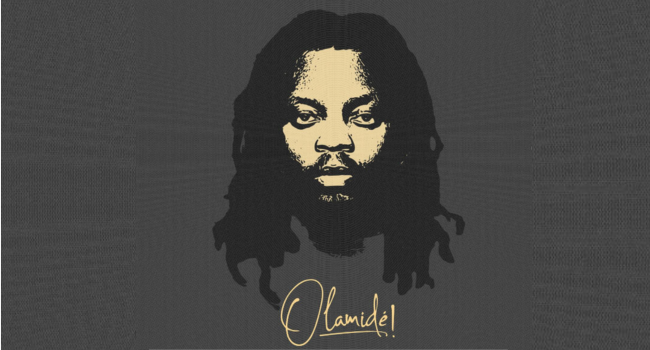Olamide’s 11th Album Marks Another Evolution in His Iconic Music Journey
Nigerian rap legend Olamide has once again proven his consistency and creativity with the release of his self-titled album Olamidé, which dropped today, June 19, 2025. This project marks his 11th studio album and possibly one of his most personal and defining bodies of work. The title alone—Olamidé—signals a return to his essence, not just as an artist but as a cultural force who has shaped the Nigerian music scene for over a decade.
The album features 17 tracks and runs for about 47 minutes, blending Olamide’s signature street-hop with a more global and refined sound. He doesn’t shy away from his Yoruba roots, but this time, he takes it even further by collaborating with international stars such as Dr. Dre, Popcaan, and Darkoo, as well as Afrobeats giants like Wizkid, Asake, Seyi Vibez, and Young Jonn. The range of featured artists reflects not just musical variety but Olamide’s reputation and reach within and beyond Africa.
Two singles paved the way for the album’s hype: “Kai!” featuring Wizkid, which dropped in April and quickly became a fan favorite, and “99”, a collaboration-heavy anthem with Seyi Vibez, Asake, Daecolm, and Young Jonn released in early June. Both tracks showcased different sides of Olamide’s versatility—smooth and melodic on Kai!, gritty and energetic on 99.
The full album offers even more layers. Tracks like “Prelude” (featuring Fxrtune) and “Hasibunallah” dig into more reflective territory, revealing a mature Olamide who is no longer just about street anthems but also about legacy, faith, and depth. On songs like “Indika” with Dr. Dre and DJ Spinall, and “Rain” with Popcaan, we hear a fusion of sounds—hip-hop, dancehall, Afrobeats—that expands Olamide’s sonic palette without compromising his identity.
What makes Olamidé especially notable is its balance. While it features global names and refined production, it doesn’t feel overly commercial. Olamide stays grounded in his Nigerian roots. Songs like “1 Shot”, “Free”, and “Lalakipo” are a reminder of his ability to make music that speaks to both the streets and the charts.
Beyond the music, the release of Olamidé feels symbolic. It’s a statement of ownership—of his name, his craft, and his legacy. This isn’t just another album in his catalogue; it feels like a personal stamp, perhaps a transition into a new phase of his career where he is more intentional, more expansive, and more reflective.
Fans and critics alike have already begun to hail the project as one of Olamide’s most complete works. Whether you’ve followed him since his early Eni Duro days or joined along during the Carpe Diem and Unruly eras, Olamidé offers something familiar yet fresh.
It’s not just an album—it’s a celebration of resilience, range, and the power of reinvention.
If you enjoyed this article, click here to read more informative posts, also check us out on Instagram for fun and engaging content.
Disclaimer: The opinions, views, and information expressed in this article are those of the author and do not necessarily reflect the official policy, position, or views of iNaijanow. The company assumes no liability for any errors, omissions, or damages arising from the use of this information.
















